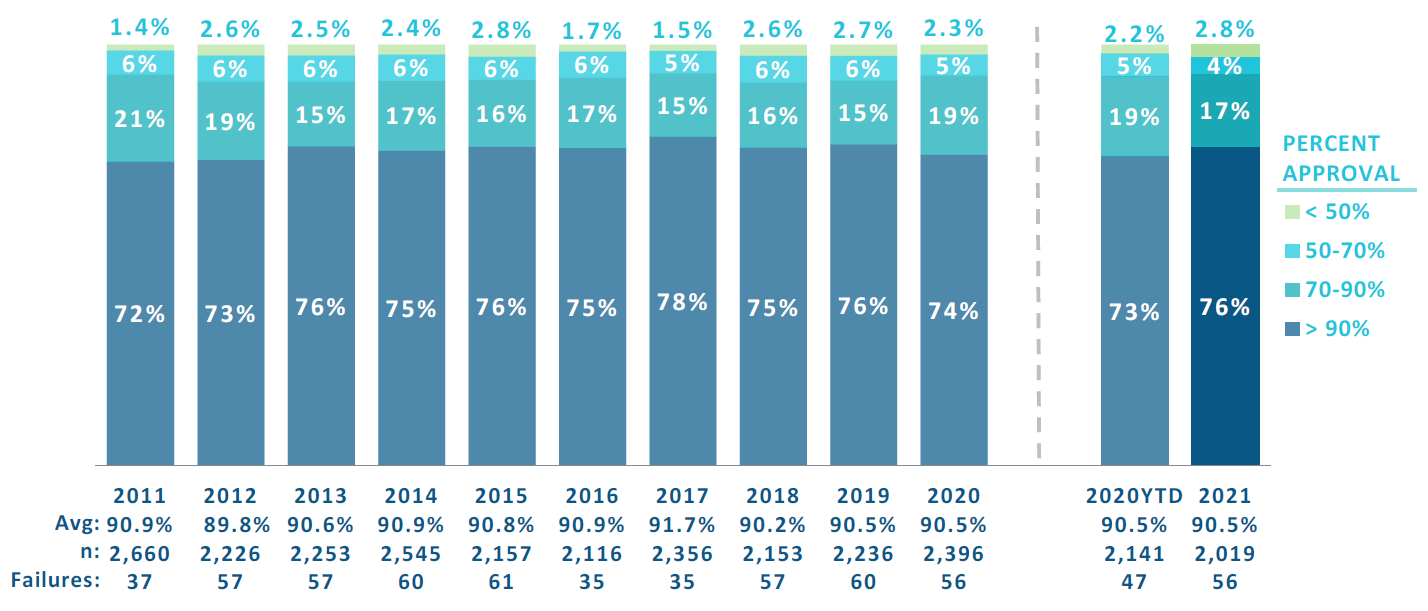Jennifer Tonti is Managing Director of Survey Research & Insights at JUST Capital. This post is based on her JUST Capital memorandum. Related research from the Program on Corporate Governance includes The Illusory Promise of Stakeholder Governance and Will Corporations Deliver Value to All Stakeholders?, both by Lucian A. Bebchuk and Roberto Tallarita (discussed on the Forum here); For Whom Corporate Leaders Bargain by Lucian A. Bebchuk, Kobi Kastiel, and Roberto Tallarita (discussed on the Forum here); and Restoration: The Role Stakeholder Governance Must Play in Recreating a Fair and Sustainable American Economy—A Reply to Professor Rock by Leo E. Strine, Jr. (discussed on the Forum here).
Since the Business Roundtable redefined the Purpose of a Corporation two years ago, we’ve been tracking how Americans think companies are measuring up to this new stakeholder-focused purpose. The macro perspective is that America’s largest companies are perceived to be doing well promoting an economy that serves all Americans; a sharp increase (16-20 percentage points) from when we first asked this question in August 2019.
Yet when asked specifically about corporations’ impact on individual stakeholders, the perception is that shareholders continue to win out over other stakeholder groups.
- Pluralities say that in the two years since the BRT’s announcement, corporations have not changed the degree to which they prioritize their stakeholder groups—workers, customers, communities, the environment, and shareholders.
- While more respondents say that companies have a positive impact on the various stakeholder groups than have a negative or no effect, shareholders continue to get the lion’s share of attention (68% positive impact) over other stakeholders such as workers (48%) or the environment (41%).
Americans continue to be optimistic about capitalism as an economic system, but there is near universal agreement that a more evolved form of capitalism is needed to:
- Ensure the greater good of society.
- Produce the kind of society respondents want for the next generation.
- Work for the average American.
